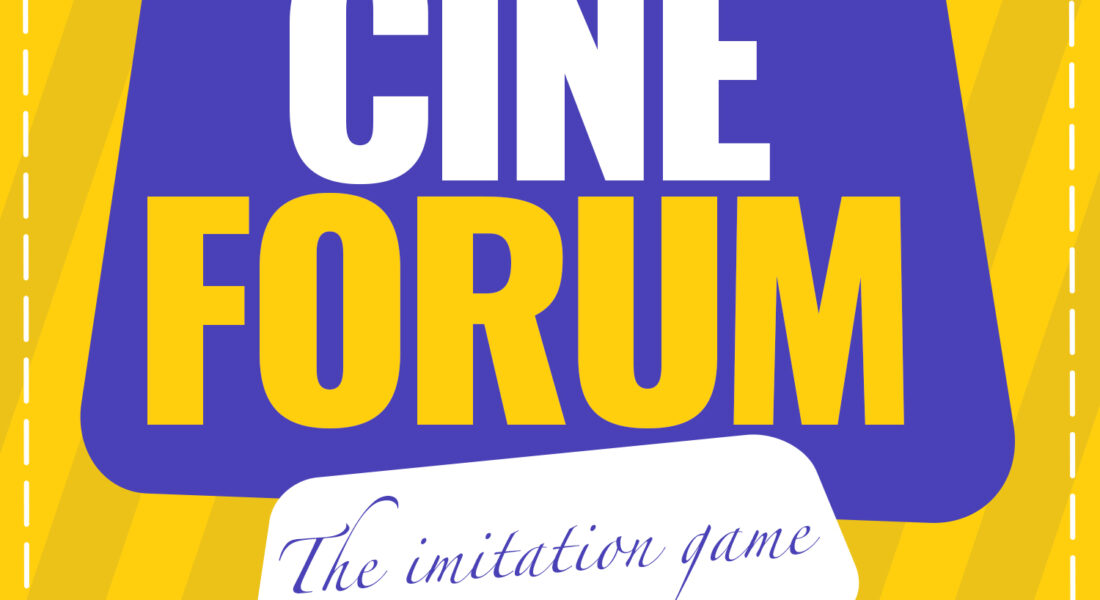
“The imitation game” – 27 February 2025 – Cinema Teatro Agnelli – h. 21:00
Scienza Migrante 2.0 project offers 50 free places.
For bookings: bit.ly/3WXeq7r
“The Imitation Game”
Directed by Morten Tyldum
Introduced by Doriana Medić, graduated in mathematics and researcher of the Department of Computer Science of Turin who originally comes from Apatin, Serbia.
Doriana moved to Italy in 2015 for her PhD in ‘Computer Science and Systems Engineering’ at the IMT School for Advanced Studies of Lucca. She is currently doing research on computer science-related concepts such as the interaction between formal methods and concurrent, distributed and reversible computation. Furthermore, she is part of the research group on parallel computing of the University of Turin, called ‘Alpha Research Group’, which studies parallel programming models, languages and tools in which Artificial Intelligence is increasingly central. She will present us “The Imitation Game”, a film on the life of Alan Turing, the father of modern computing and one of the pioneers in the study of artificial intelligence.
Turing was a brilliant British mathematician, logician and cryptographer with an incredible imagination who in 1936 laid the foundations of modern technology with ‘On computable numbers, with an application to the Entscheidungsproblem’. A theory in which he talked about the concept of algorithm and presented an abstract model of what would later be called the “Turing machine”, capable of simulating algorithms and making logical calculations for any computable sequence that he did not, however, have the technology to build. Shortly afterwards, the Second World War broke out. The Nazi army began to use targeted bombing of cities and attacks via submarines as war tactics to weaken the enemy, preventing the arrival of supplies and causing millions of civilian casualties. This used ‘ENIGMA’ for the communications of military operations, an electromechanical device used to encrypt and decipher messages that were broadcast via radio communications. For the Allies, such as the British Army, these messages were impossible to understand without decryption keys and the latter became a priority mission.
In 1939, Turing came into the picture. He worked in the service of the British Department of Cryptanalysis to decipher the Nazi secret codes and his contribution was essential to end the world conflict, for the victory of the Allies and the fate of Europe as we know it today. How? By building the machine that years earlier he had only theoretically imagined. But how did this machine work? How was it able to decipher enemy messages? And what was its immediate impact on the fate of the war?
Tyldum’s direction is developed through a montage that interweaves different phases of Turing’s life and, while it had the role of making him internationally known, it also had the merit of making a harsh social criticism of the bigotry of 1950s England. In fact, although it is estimated that Turing may have saved more than 14 million people thanks to the deciphering of German messages, his work was known only in 1979 as it was covered by military secrecy. Instead, he was arrested and convicted for homosexuality, illegal in England in 1952, which forgot his merits and forced him to undergo chemical castration, an inhuman treatment that remained in place in the country until 1967. Two years later he committed suicide by taking a bite out of a cyanide-covered apple, the same apple that is said to be today’s Apple symbol. In 2009 the British government apologised for the unfair, violent and discriminatory treatment he suffered. In 2012, eleven British scientists asked for the overturn of his conviction and in 2013 Queen Elizabeth II granted him a pardon.
Turing believed that the human brain and machines were not so different in their functioning. He was the first to think about artificial intelligence and influence its development. According to Turing, machines one day would have been able to simulate the human mind, what do you think? “Can a machine think like a human being?”.
The film will be shown in Italian with English subtitles.
Scienza Migrante 2.0 project offers 50 free places.
For bookings: bit.ly/3WXeq7r
Additional tickets can be purchased directly at the Agnelli cinema at a price of:
- 4 € – For students, over 65s or persons in possession of discount cards or those in the waiting list.
- 5 € – Full ticket
For more information: scienzamigrante@unito.it


